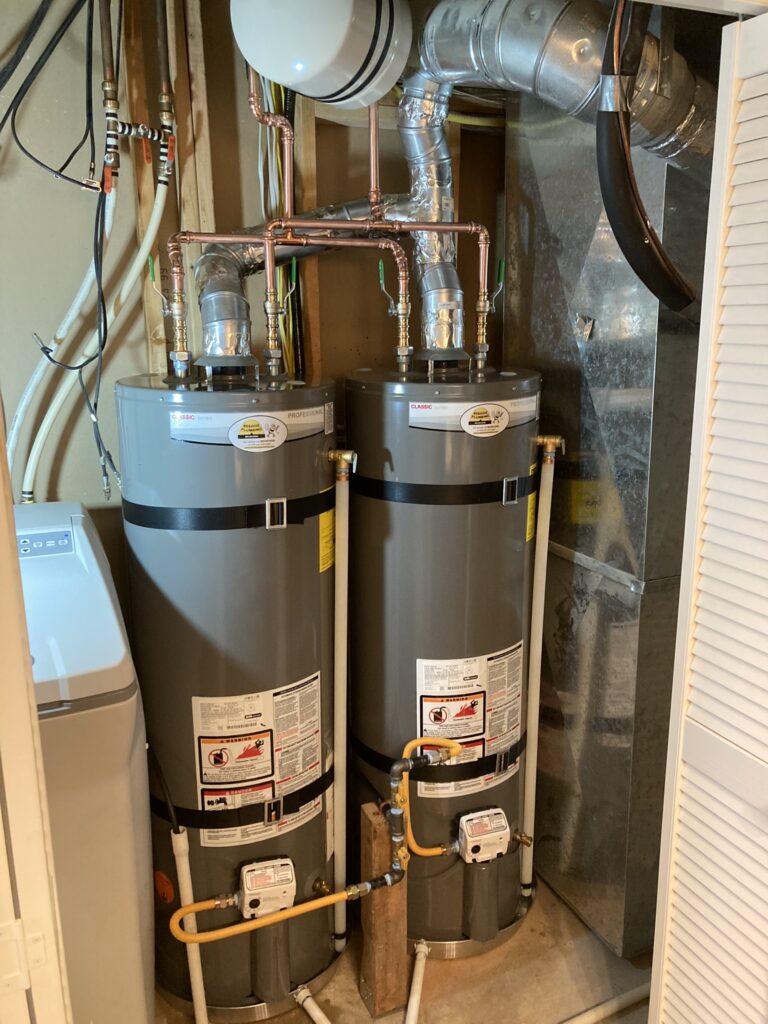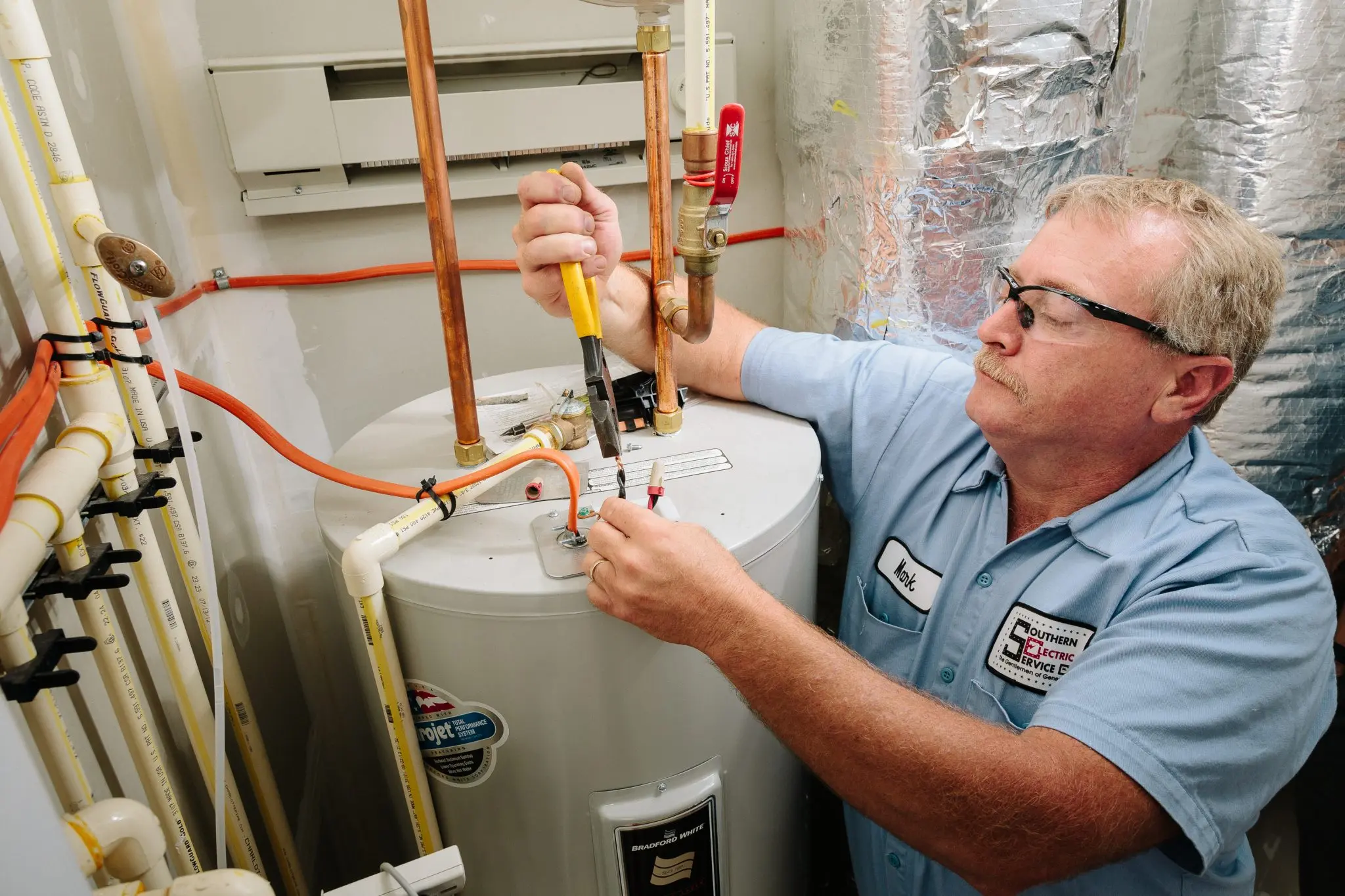Complete Overview to Water Heating SystemSetup and Substitute
Recognizing the intricacies of water heating unit installment and substitute is important for home owners seeking to make sure performance and integrity in their warm water supply. From choosing the proper kind and size to implementing a seamless setup process, numerous aspects should be taken into consideration to stay clear of common mistakes. This guide will certainly supply you with the required steps and understandings to browse the intricacies of this home improvement task, while also emphasizing crucial maintenance methods that can extend the life of your system. As you check out these elements, you may find yourself reassessing your current configuration and recognizing areas for enhancement.
Kinds Of Hot Water Heater
When taking into consideration hot water heater setup and replacement, it is necessary to understand the different kinds of hot water heater available in the market. One of the most usual types consist of storage tank water heating systems, tankless water heating units, heatpump hot water heater, and solar water heating systems.
Storage tank water heating systems are standard systems that keep a specific quantity of warm water, making them conveniently offered when needed. They are generally much less expensive in advance but might sustain higher power costs with time because of warmth loss. In contrast, tankless water heaters provide warm water as needed, removing the requirement for storage. They are power efficient and can conserve space, however their initial expenses are normally higher.
Warmth pump water heaters use electrical energy to transfer warm from the air or ground to heat water, providing considerable power savings but needing even more area and certain installment conditions. Solar water heating units harness solar power to warmth water, providing an environment-friendly choice with possible long-lasting expense savings, although they commonly require a back-up system for gloomy days.
Understanding these choices guarantees educated decisions regarding installment and replacement, satisfying certain demands and choices.
Picking the Right Dimension
Selecting the appropriate size for a water heater is crucial to make certain optimal performance and efficiency. A system that is also small will have a hard time to fulfill family demands, causing irregular warm water availability and increased energy intake. Alternatively, a large water heating unit can cause unnecessary energy waste and higher energy expenses.
To determine the best size, think about the home's optimal hot water usage. This can be computed based upon the number of passengers and their normal hot water needs. For instance, a household of four might need a water heating system with an ability of 50 to 80 gallons, relying on the use patterns, such as synchronised showers and laundry.
Furthermore, evaluate the recuperation price, which determines just how rapidly a heating unit can renew warm water after it has been made use of. For tankless versions, concentrate on the flow price, determined in gallons per min (GPM), to guarantee it meets the family's simultaneous demand.

Installment Process Overview

Following, the old system should be separated and gotten rid of, making sure to adhere to regional codes and guidelines pertaining to disposal. As soon as the old system is out, the new hot water heater can be positioned in place. This action includes connecting the supply of water lines, guaranteeing that all fittings are secure and leak-free.
After establishing water connections, it's vital to link the power supply, whether electrical or gas, complying with the producer's guidelines diligently. Once all links are made, the system should be loaded with water, and the power can be transformed back on. It's crucial to examine for leakages and ensure the water heating unit is operating correctly before completing the installment process.
Typical Setup Mistakes

One more constant mistake is ignoring to follow regional codes and laws. Failing to adhere to these requirements can not just lead to safety risks however might additionally result in pricey fines or the requirement for pricey reinstallation.
Incorrect plumbing see this links are also a common mistake. Failing to safeguard connections or making use of the incorrect kind of installations can lead to leaks and water damages. Neglecting the significance of an appropriate drain pan can result in significant water damage if leakages do take place. Poor insulation of pipelines can lead to warmth loss, decreasing effectiveness. By avoiding these common setup blunders, house owners can ensure their water heater runs safely and successfully, maximizing performance and long life.
Upkeep Tips for Longevity
Correct maintenance of a hot water heater is important for its longevity and optimum efficiency. Routine examinations and maintenance can stop expensive fixings and extend the device's life-span. Begin by checking the temperature setup; it must generally be set in between 120 ° F and 140 ° F for optimal power efficiency and security.
Every six months, flush the tank to eliminate debris accumulation, which can impair heating performance and trigger rust. To do this, turn off the heating system, link a hose to the drain valve, and let the water run up until it is clear.
When they are rusted,Anode rods ought to be checked every year and changed. These poles help avoid storage tank deterioration by attracting corrosive aspects in the water.
Furthermore, examine the stress relief valve on a regular basis to ensure it is working properly. This shutoff is essential for preventing extreme pressure buildup within the storage tank.
Finally, consider scheduling a professional maintenance check every few years for extensive assessments and maintenance. By sticking to these maintenance suggestions, home owners can significantly boost the performance, safety and security, and life-span of their hot water heater, making certain reliable warm water for several years ahead.
Verdict
In final thought, appropriate installation and weblink maintenance of water heating systems are essential for guaranteeing performance and durability. By comprehending these crucial facets, house owners can accomplish a dependable hot water supply while reducing possible concerns related to water heating unit operation.
Recognizing the complexities of water heating unit installation and replacement is important for home owners seeking to ensure performance and dependability in their hot water supply.Container water heating units are standard systems that store a details volume of warm water, making them conveniently available when needed. In contrast, tankless water heating systems provide hot water on demand, getting rid of the demand for storage. Selecting a water heating unit that is either as well tiny or also large can lead to inefficiencies, resulting in insufficient warm water supply or too much power intake.
By understanding these necessary facets, home owners can achieve a reputable warm water supply while decreasing potential issues related to water heater operation. plumber Denton.